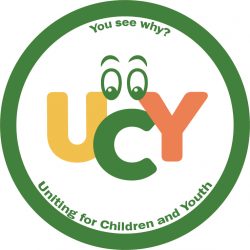Question 4 – Zone 1 Response
Contents
The Question in brief
Response from:
– Lynn Scott
The Question in Brief
In your opinion, is equitable, inclusive education important? Why or why not? (See full text of Question 4.)
Lynn Scott
1. In your opinion, is equitable, inclusive education important? Why or why not? You are invited to consider visible minority, invisible minority, and non-minority students in your response?
Equitable inclusive education is very important, given that all of our students live in an increasingly diverse Canadian society. They need to be comfortable with who they are, and accepting of those who are different from themselves in order to maximize their opportunities for personal success and happiness. No student should be left behind, and all students need to be given the opportunity to reach their maximum potential.
At the same time, we must be wary of labels, because I see the negative impacts of the overuse of labels when people start talking about students without considering that there are real children behind the labels, or without considering that some students fall under more than one label. We need labels in order to develop data and do statistical analysis to assess system needs and the success of system initiatives, but to educate equitably we need to see the student as an individual with unique characteristics and needs.
2. How have you personally demonstrated your commitment to inclusive, equitable education?
I’ve supported many initiatives to differentiate instruction to meet the diverse needs of individual students. I’ve taken advantage of opportunities to learn more about methods of engaging and supporting students from groups that historically have had challenges to access all the benefits of public education, and have supported targeted initiatives and resource allocations resources specifically in support of minority groups.
3. Would you vote in favour of an initiative similar to the DDSB’s Equity and Diversity Strategy Framework?
Yes. Although the OCDSB has undertaken a number of initiatives in support of equity and diversity, it lacks an over-arching framework, and I see developing such a framework as an important part of the next strategic plan.
4. Please provide between 1-5 examples of practical steps you would want to see included in a comparable document.
5. Do you believe that there is a role for alternative, self-directed programs to play in promoting equity and inclusion? Why or why not?
Possibly. Individual teachers and school administrators, in consultation with the school administration and superintendent, can propose alternative programs which, if well designed and based on sound rationale, can be tried out in schools with single classes or groups of students. Where these programs demonstrate success, they can serve as models for other “one off” initiatives, or even become district initiatives.

